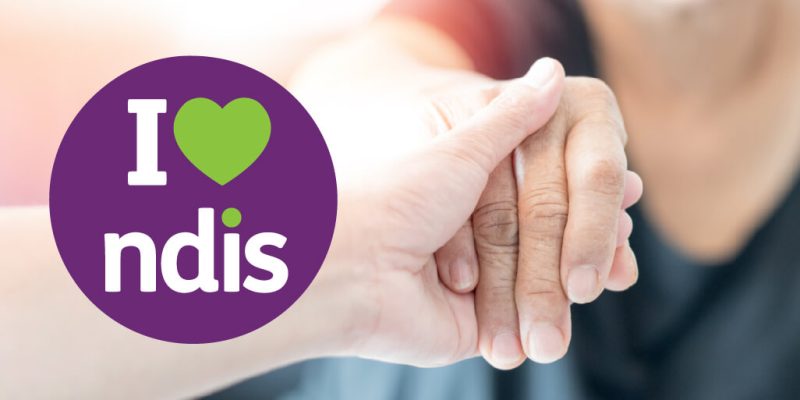
Australians with impairments are supported through the National Disability Insurance Scheme (NDIS), a government-funded initiative. The function of NDIS registered providers, which are businesses and people that assist NDIS members, is a crucial component of the NDIS. You may ask, “Why?” You can find a summary of all the information you need about NDIS-registered providers here, including a description of their roles, advantages, and how to register to use their services.
What are NDIS Registered Providers?
The companies and individuals that help NDIS members are known as registered providers. They provide services and support that might include, but not be limited to, transportation, housing, treatment, and help with everyday activities. NDIS registered service providers may be for-profit or nonprofit businesses and independent contractors that provide assistance and services.
Non-profit, for-profit, and governmental entities are all examples of organisations that may be registered NDIS providers. Organisations and individuals must fulfil certain NDIS eligibility requirements and complete a thorough evaluation procedure to become registered providers. Their financial stability, insurance coverage, and adherence to pertinent laws and regulations are all examined throughout this process. Participants in the NDIS may receive support and services from NDIS providers, and these providers will receive payment from the NDIS for the cost of these supports and services.
Delivering a variety of services and supports to participants is the responsibility of NDIS registered providers, which includes but is not limited to:
- Help with everyday life tasks
- Support for social inclusion and community involvement
- Therapies and other health-related services
- Assistance with obtaining and keeping work
Additionally, NDIS-certified providers have access to various tools and resources to aid in providing top-notch services. The NDIS offers professional development opportunities, training, and other tools to registered providers so they may enhance their offerings and serve participants more successfully.
Benefits of Having an NDIS Provider Registration
An NDIS (National Disability Insurance Scheme) provider registration can offer several benefits. The advantages, in addition to those already listed, include the following:
1. Access To A Large And Growing Market
The NDIS, a sizable government-funded initiative, supports over half a million disabled Australians. Organisations and people that are registered NDIS providers have access to this vast and expanding market, giving them a reliable source of revenue and the chance to expand their company.
2. High Standards Of Quality And Accountability
NDIS-registered providers are subject to strict quality and accountability requirements, ensuring that participants get high-quality services and support. This may improve business prospects and foster a sense of confidence and trust among NDIS members and their families.
3. Access To Resources And Support
To assist them in providing high-quality services, NDIS-registered providers have access to a variety of tools and assistance, including training, professional development, and other resources. As a result, service providers can assist participants more successfully.
4. Compliance With Laws And Regulations
Organisations and people that register as NDIS providers must adhere to the NDIS Code of Conduct, the Quality and Safeguards Commission requirements, and any other applicable laws and regulations. By doing so, the possibility of legal and financial problems may be decreased, and industry requirements can be met.
5. Increased Job Opportunities
Being an NDIS registered provider can increase job opportunities in the disability support sector, providing more employment opportunities for people with disabilities and their families.
6. Positive Impact On Society
Organisations and individuals may significantly influence the lives of persons with disabilities and their families by becoming NDIS-registered providers, enabling them to lead independent and fulfilled lives.
What Are the Terms of Becoming an NDIS Registered Provider
Organisations and individuals may have a significant influence on the lives of persons with disabilities and their families by becoming NDIS-registered providers, enabling them to lead independent and fulfilled lives. The following conditions must be satisfied in order to become a registered provider:
- Meeting the necessary training, certification, and/or registration standards for the services provided.
- Demonstrating adherence to all applicable laws, rules, and requirements.
- Maintaining a stable financial situation and enough insurance.
- Completing the registration procedure can include submitting paperwork, going on a site inspection, or taking part in a quality assurance test.
- Signing a provider agreement that spells out the NDIS’s obligations and those of the provider.
- Observing the NDIS Code of Conduct and other NDIS rules and regulations.
Conclusion
A useful approach to give back to the community is to become a registered provider with the NDIS, which will open up options for offering services to people with disabilities. Meeting specific qualifications and abiding by NDIS regulations are necessary steps in becoming an NDIS registered provider. Qualifications, accreditation, respect for rules and laws, financial stability, and observance of the NDIS Code of Conduct and other policies are a few examples. It is crucial for businesses or people who are interested in becoming NDIS registered providers to examine their local NDIS website for any criteria that may apply and to complete the registration procedure thoroughly.











